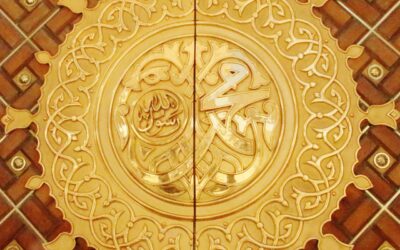We will get to know the Khulafaye Rashedin From this article.
Guided Caliphs of Early Islam
Khulafaye Rashedeen (often referred to as the “Rightly Guided Caliphs”) are revered figures in Islamic history and are loved by Muslims worldwide. As successors to Prophet Muhammad (ﷺ), these four individuals played an essential part in shaping early Islamic state formation, upholding Islamic teachings, spreading its message, and leading Muslims through tough times. Their reign was characterized by justice, righteousness, and loyalty to its principles.
Who Were Khulafaye Rashedeens?
The Khulafaye Rashedeen are four caliphs who ruled successively after Prophet Muhammad (ﷺ) passed away. They include:
Abu Bakr As-Siddiq (r.a):
Abu Bakr was one of Muhammad (ﷺ)’s closest companions and father-in-law, serving as first caliph for approximately two years in 632 CE ruled with great faith, humility and commitment to uniting Islam’s fledgling community. His leadership is remembered for unwavering faith, humility and his dedication in maintaining its integrity and unification. He was a strict Ruler and he always tried to bind all the Religious things as it was at the time of Rasul (ﷺ).
Abu Bakr Said:
“By Allah, if they withhold the rope of a camel they used to give in Zakat to Allah’s Messenger, I will fight them for it.”
Umar Ibn al-Khattab (r.a):
Umar was appointed the second caliph after Abu Bakr, serving from 634 to 644 CE and notable for his commitment to justice, administrative reforms, and expanding Islam across new territories. His reign marked an unparalleled period of rapid Islamic expansion into new regions.
He was killed while praying the Fajr.
Uthman Ibn Affan (r.a):
Uthman was appointed the third caliph in 644 CE and held this office until 656 CE, during which time he is known for compiling the Quran into one standard text. Under Uthman’s reign was an extended period of stability and territorial expansion.
Ali ibn Abi Talib (r.a):
Ali was the cousin and son-in-law of Muhammad who became caliph for four times after becoming Imam Ali died in 656 CE. Despite internal tensions such as First Fitna (civil war), despite this turbulent period he remains revered today for his profound knowledge of Islam, piety, and commitment to justice.

Key Accomplishments and Contributions
Khulafaye Rashedeen made significant contributions to early Islamic history:
Preservation of the Quran:
Uthman was instrumental in compiling and preserving the Quran in an accessible format that ensured its integrity across Muslim territories worldwide.
Administrative Reforms:
Under Umar, the Islamic state saw administrative reforms that included creating a centralized government that improved governance and justice.
Social Justice:
Caliphs were committed to upholding principles of social justice, providing fair distribution of wealth and resources among Muslims communities.
Expansion of Islam:
During their rule, Islam rapidly expanded, reaching new territories while spreading its message of peace and righteousness across the globe.
Leadership and Justice
These are at the core of everything they do.
Khulafaye Rashedeen distinguished themselves through their commitment to justice, humility and adhering to Islamic principles. They were known for being easily accessible to commoners living simply lives as well as upholding all individuals regardless of social or economic standing.
Their leadership set an exemplary standard for subsequent generations of Muslim leaders. Prioritizing the welfare of their respective Muslim communities and seeking justice in all matters earned these caliphs the title “Rightly Guided.”
Legacy and Lessons
The Khulafaye Rashedeen have left us an invaluable legacy which continues to serve as a source of guidance and direction for Muslims today. Their exemplary leadership serves as a source of wisdom to both individuals and nations alike; key lessons from their lives include:
Adherence to Islamic Principles
The caliphs were an inspiration in their commitment to Islamic values and principles when leading their kingdoms, providing a model for future leaders to follow.
Justice and Fairness:
Their focus on justice and fair treatment for all is an affirmation of its central principles in Islamic governance.
Unity and Brotherhood
The Muslim community demonstrated the significance of unity and brotherhood to Islam through their efforts.
Khulafaye Rashedeen are revered figures in Islamic history as paragons of leadership, justice, and piety. Their legacy continues to serve as an inspiration and guidance for Muslims worldwide who need reminders about upholding Islamic principles throughout life.











